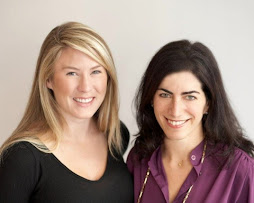A friend recently recommended a book called Mindset: The New Psychology of Success by Carol Dweck. Although I have not read the book in its entirety yet I like what I have read so far!
Read the Publishers Weekly Review:
[Mindset is "an established set of attitudes held by someone," says the Oxford American Dictionary. It turns out, however, that a set of attitudes needn't be so set, according to Dweck, professor of psychology at Stanford. Dweck proposes that everyone has either a fixed mindset or a growth mindset.
A fixed mindset is one in which you view your talents and abilities as... well, fixed. In other words, you are who you are, your intelligence and talents are fixed, and your fate is to go through life avoiding challenge and failure.
A growth mindset, on the other hand, is one in which you see yourself as fluid, a work in progress. Your fate is one of growth and opportunity.
Which mindset do you possess? Dweck provides a checklist to assess yourself and shows how a particular mindset can affect all areas of your life, from business to sports and love. The good news, says Dweck, is that mindsets are not set: at any time, you can learn to use a growth mindset to achieve success and happiness. This is a serious, practical book. Dweck's overall assertion that rigid thinking benefits no one, least of all yourself, and that a change of mind is always possible, is welcome.]
I am particularly intrigued by the applications of this “mindset” to entrepreneurs. Come to think of it, in many ways, having a growth mindset may be a key ingredient to entrepreneurial success. If you are an entrepreneur, whose ultimate goal is to yield business success, using a fixed mindset approach in response to business challenges will likely result in greater challenge and failure.
For example, if you have a conflict with a client, you could just say that the client is difficult and therefore the conflict is the client’s fault. That would be a fixed mindset approach, which may prove to be detrimental if you loose the client’s business. A growth mindset would be to take responsibility for your part of the conflict, see how you can fix the situation, and learn from it so that you may avoid similar conflicts in the future.
To learn more about your current mindset and tips about how to change a fixed mindset to a growth mindset – check out Dweck’s website http://www.mindsetonline.com/.
Posted by Amy
September 15, 2008
Subscribe to:
Post Comments (Atom)




No comments:
Post a Comment